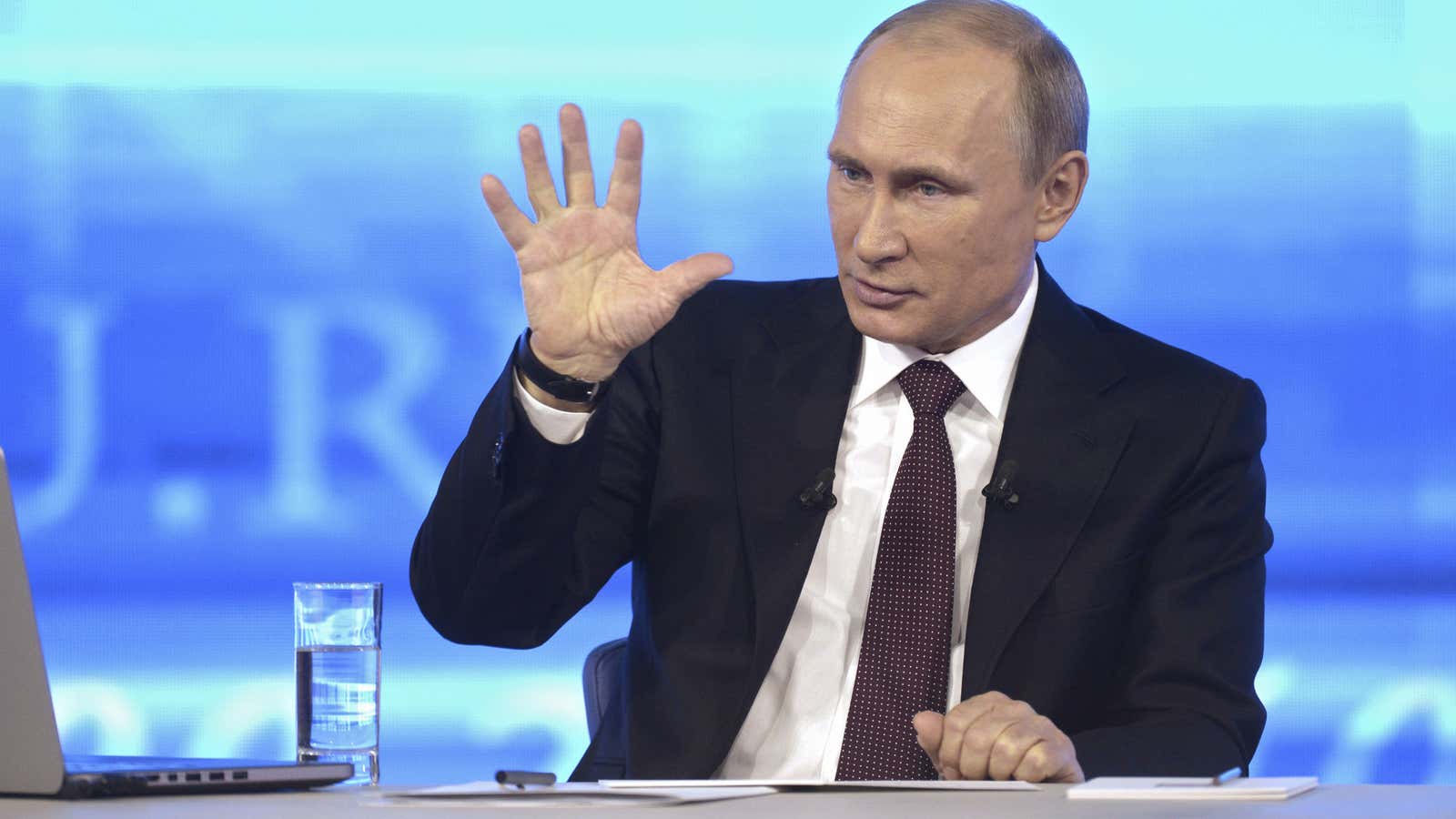In recent weeks, Russian president Vladimir Putin has been pretty clear about his Ukraine strategy. He annexed Crimea, he said, because were it not for a sentimental gesture by Nikita Khrushchev, the region would have remained part of Russia, as it historically had been. He was simply righting a historical misstep, he said.
But with eastern Ukraine, Putin’s critics have said, he had a harder case for a territorial claim. Until today. In his marathon news conference, Putin repeatedly called a broad swathe of eastern Ukraine “New Russia.” He said it was part of Russia proper during the Czarist era, but was inexplicably plopped into Ukraine not long after the 1917 Bolshevik revolution. In his words, as transcribed by the New York Times:
The question is to ensure the rights and interests of the Russian southeast. It’s New Russia. Kharkiv, Lugansk, Donetsk, Odessa were not part of Ukraine in Czarist times. They were transferred in 1920. Why? God knows. Then for various reasons these areas were gone, and the people stayed there. We need to encourage them to find a solution.
Putin also directly accused Kyiv of “grave crimes,” lines that seemed framed as added justification for action in eastern Ukraine. He said:
Instead of realizing that there is something wrong with the Ukrainian government and attempting dialogue, they made more threats of force. … This is another very grave crime by Kyiv’s current leaders.
The remarks followed a deadly clash today in the Black Sea port of Mariupol, where three pro-Russian fighters were killed and 13 reported wounded when they attacked a Ukrainian National Guard base.
So is annexation now inevitable? While Putin certainly created the justification for it today, he might not mean to use it. He could be simply applying pressure on US, EU, and Ukrainian diplomats, who at the same time were in Geneva carrying on talks with their Russian counterparts over Ukraine’s future. Putin favors a federalization of Ukraine, in which the regions closest to Russia could have quasi-independent economic and foreign policies tailored to Moscow’s liking. Kyiv has been open to more autonomy but has refused it thus far to the extent described by Putin.
Nonetheless, Putin’s veiled threat of annexation is not an empty one. Though absorbing eastern Ukraine would be no small feat given its size and mixed Russian-Ukrainian population, he would not necessarily require an invasion by the estimated 40,000 Russian troops currently deployed on the Ukraine border. As Kyiv has watched all-but-helplessly in recent weeks, uprisings have seized government buildings across the region without any overt Russian meddling. Donetsk, Kharkiv, Slovyansk, Horlivka, and cities elsewhere have demanded referendums with, among other potential questions, the right to join Russia. Donetsk has scheduled its referendum for May 11, two weeks before Ukraine’s scheduled presidential election. Thus, relying on the Crimea operation as an example, a new annexation could take place before or right around the election on May 25.
Both the US and Europe have repeatedly called a Russian attack or annexation of eastern Ukraine a red line. But companies including the energy giants BP and Eni that do much business in Russia are lobbying (paywall) for a muted western reaction to Putin. Putin is banking that such self-interested western caution will continue.
